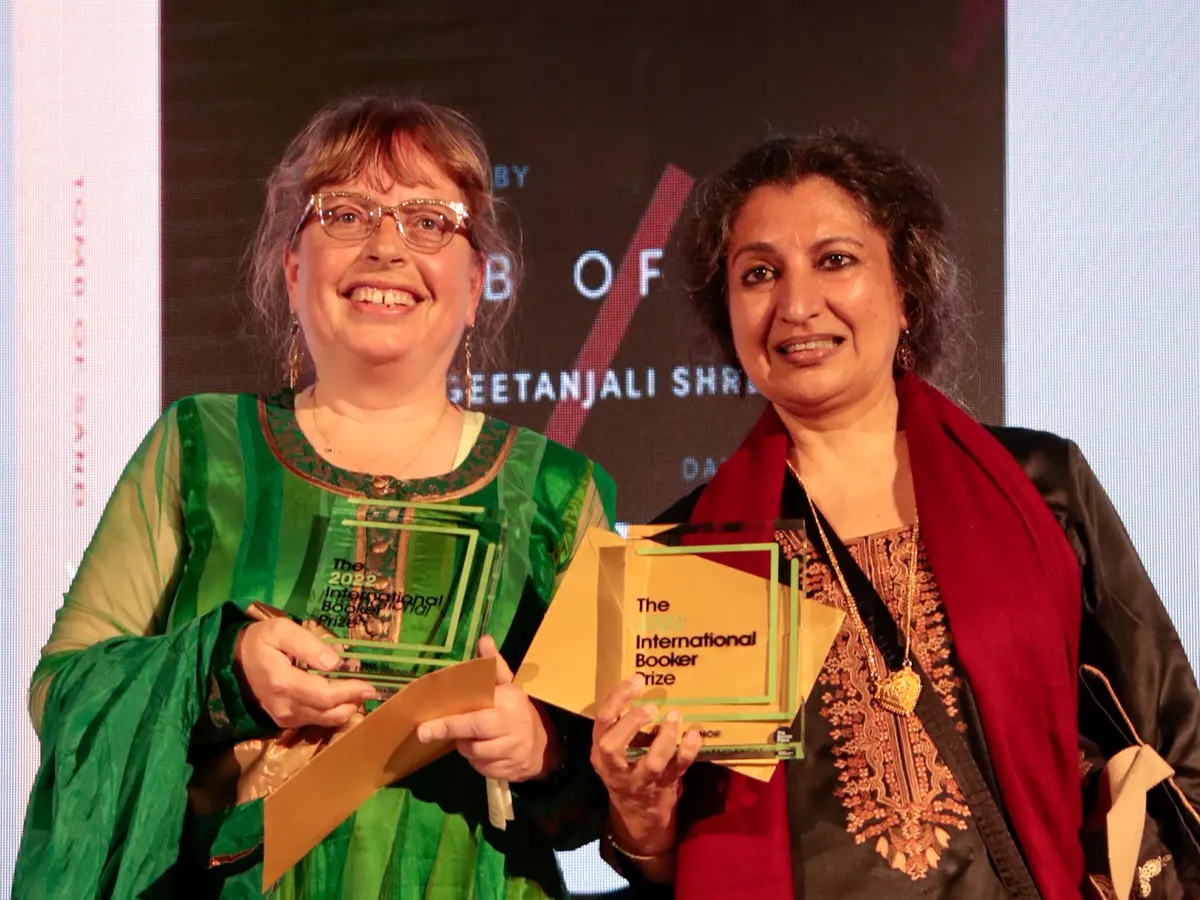
‘After winning the International Booker Prize, I feel a renewed sense of purpose’
NOTE: This interview is a republication- Source: The Booker Prizes (by Max Liu).
The Indian writer Geetanjali Shree and her American translator Daisy Rockwell have experienced a whirlwind year since the night last May when they won the International Booker Prize for Tomb of Sand. But the evening did not get off to the most auspicious of starts.
‘The judges kept it very well hidden that we had won,’ says Shree, speaking over Zoom from her home in Delhi. One of the judges, she recalled, shook her hand, then quickly looked away and walked on.
Rockwell, who is joining our three-way Zoom call from Vermont, laughs and says: ‘All the judges tried to avoid us beforehand. But they just didn’t want to give it away.’
Afterwards, the judging panel, chaired by translator Frank Wynne, were much less enigmatic when it came to describing how much they had loved Shree and Rockwell’s book, which is the first novel written in Hindi to win the prize. They hailed the ‘power, the poignancy and the playfulness’ of Tomb of Sand, a polyphonic novel about an 80-year-old woman who, after becoming depressed following the death of her husband and lying in bed for most of the book’s first 200 pages, embarks upon a journey across her country and into her past. They called it ‘a luminous novel of India and partition, but one whose spellbinding brio and fierce compassion weaves youth and age, male and female, family and nation into a kaleidoscopic whole’.
The reaction to Tomb of Sand’s International Booker win was even more rapturous in India. ‘Thousands of people got up at 2 or 3am to watch the ceremony live,’ Shree explains. ‘I found that very moving. They were not my family or friends, just people who love literature and the language and had so much investment in it. They were completely ecstatic.’
Her mother’s response to the win touched Shree deeply. ‘She is 96 now and was so delighted. One of the biggest moments for me, bigger even than when the Booker was announced, was when my mother gave me a hug and said: “I knew one day you would reach here.” That meant everything to me.’
To read the full interview click here